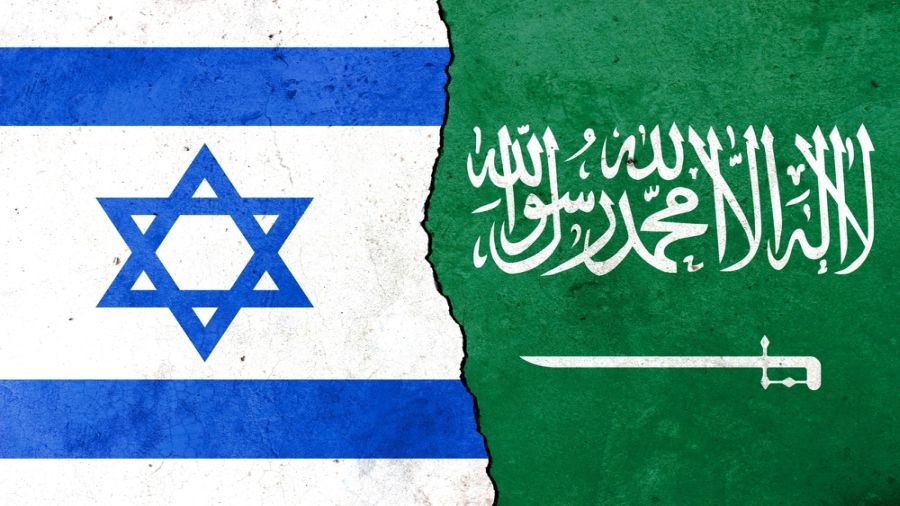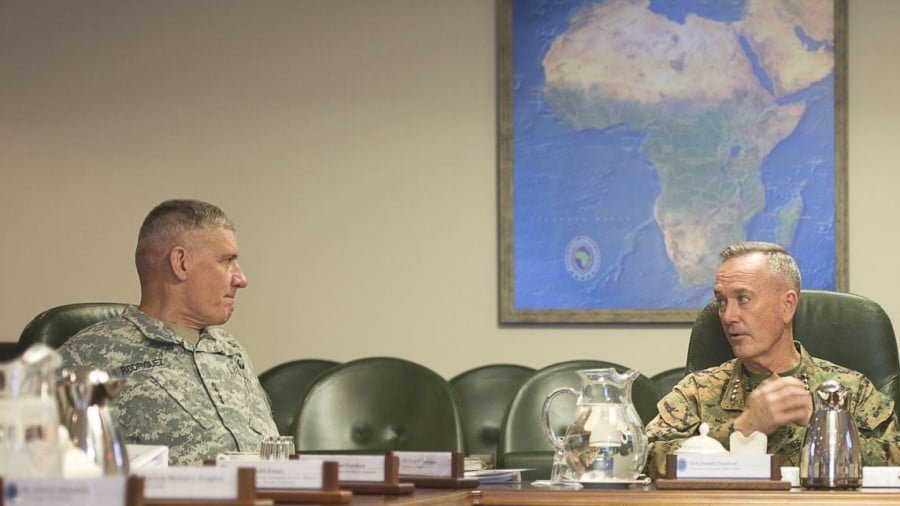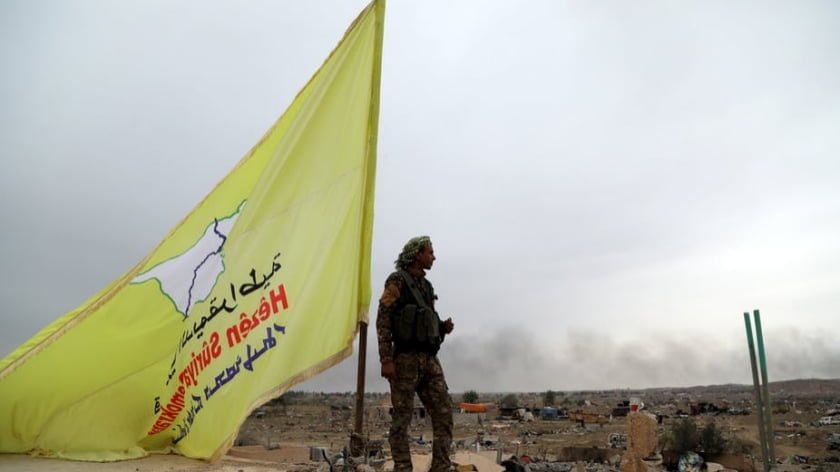Israel and Saudi Arabia – Will it be Against or for the Agreement?
Relations between Israel and Saudi Arabia remain far from being stable. Meanwhile, Riyadh and Tel Aviv, despite the Arab-Jewish confrontation, had in fact maintained informal relations until 1967. This conflict was marked by the presence of a common antagonist in Egyptian President Gamal Abdel Nasser, who backed the Republicans in Yemen’s civil war against the Royalists, who in turn was backed by the Saudis.
After Israel’s 1967 seizure of Jerusalem (al-Quds) and the Islamic shrine of al-Aqsa Mosque on the Temple Mount, the situation in Saudi-Israeli relations changed dramatically. As a result, Saudi Arabia, the “keeper of both shrines” of the Islamic world, Mecca and Medina, represented by then King Faisal, dramatically changed course from Tel Aviv in favor of Cairo.
The special position of the Kingdom of Saudi Arabia (KSA), which is associated with the status of “keeper of both shrines,” has a permanent impact on its foreign and domestic policies. Saudi Arabia is not just a theocratic state but, in fact, the center of Islamic sacredness. As a result, Riyadh has always had to address the religious Islamic aspect of diplomacy, even in terms of Arab-Israeli relations.
Thanks to the regional influence of a major U.S. ally among the Arab states by 2020, Israel maintained diplomatic relations with Jordan and Egypt. In 2020, the US President Joseph Biden Administration initiated a process of normalizing relations between Israel and a number of Arab countries. This initiative of US diplomacy ended up being called the Abraham Accords Peace Agreement, joined by the UAE, Bahrain and Morocco. However, Riyadh has not yet joined the Abraham Accords.
But ever since China began mediating the thawing of relations between Iran and Saudi Arabia, the United States has felt a few shortcomings in its Middle East diplomacy. The restoration of Iranian-Israeli relations through a similar push from Beijing may be something that US intelligence is aware of, which would be detrimental to American interests in the region. In this regard, the Biden Administration began to make efforts to normalize relations between Israel and the Saudis.
Saudi Crown Prince Mohammed bin Salman is known to demonstrate a more nationally oriented policy, which would theoretically preserve the possibility of establishing relations between Riyadh and Tel Aviv for reasons of practicality. The American edition of the New York Times reported in June that in negotiations between Riyadh and Washington, the Saudis, in the context of normalizing relations with Tel Aviv, demanded that the United States agree to enrich uranium in the Kingdom’s civil nuclear program, lift certain restrictions on the supply of American weapons to the KSA and sign a new defense agreement with the United States on security guarantees. In return, Washington required Riyadh to drop its demand for a Palestinian state with Jerusalem as its capital in order to reach a peace agreement and resume diplomatic ties with Israel.
However, no one in the USA and Israel, despite the expected positive dynamics in the future, as Secretary of State Anthony Blinken notes, “has no illusions” about an agreement between Tel Aviv and Riyadh any time soon. Israeli Foreign Minister Eli Cohen did not rule out that normalization with Saudi Arabia could take place before March 2024. In turn, Israeli Prime Minister Benjamin Netanyahu, speaking with US Senator Lindsey Graham, called normalization and peace with Saudi Arabia a big step towards ending the Arab-Israeli conflict.
However, opinions on this topic are contradictory in the Israeli community of experts. Efraim Inbar, one of Israel’s leading political scientists and founder of the influential Begin-Sadat Center for Strategic Studies (BESA), believes that the normalization of relations between Israel and Saudi Arabia is unlikely. The Israeli expert gives the following reasons for his position:
1) The Saudi royal family is still dominated by conservative attitudes toward Israel, and the position of Crown Prince Mohammed bin Salman at the moment is not yet strong enough to ignore the more religious views of his rival brothers to the throne, for example, Princes Muhammad bin Nayef and Ahmed bin Abdulaziz;
2) it is unacceptable for Israel to transfer nuclear technology from the USA to Saudi Arabia in any event, allowing Riyadh to eventually produce a full cycle of uranium enrichment and move from peaceful to military nuclear power;
3) Riyadh’s acquisition of nuclear technology could trigger a nuclear race in the Middle East, and other key countries in the region (including Turkey and Egypt) following Saudi Arabia’s lead.
Ephraim Inbar considers the proliferation of atomic weapons in the Middle East a “strategic nightmare” for Israel. That is why Tel Aviv categorically objects to the very possibility of Americans transferring nuclear technology to Riyadh. “It would be acceptable for Israel,” Ephraim Inbar believes, “to pay the price and give up diplomatic relations with Saudi Arabia as long as it does not have access to nuclear technology.”
Naturally, ensuring the strategic security of the state is the cornerstone in preserving the state itself. In the relatively peaceful period of the Cold War era, the possibility of a nuclear war was discussed in international diplomacy only hypothetically, taking into account the balance of the bipolar world order and the responsible approach of the two great powers represented by the USSR and the USA (the military blocs of the Warsaw Pact and NATO). Today the world is under the threat of a nuclear catastrophe because of, on the one hand, the hegemonic aspirations of the United States and the policy of “controlled chaos” encouraged by Washington, and, on the other hand, the lack of a political and legal framework for a multipolar world order that excludes the use of nuclear weapons.
At the same time, according to some experts, Israel already has nuclear weapons under US supervision. However, Tel Aviv categorically opposes the acquisition of nuclear technology by other Middle Eastern states with which Israel has complex relations. In particular, Iran, Iraq, Syria, the KSA, and Egypt.
While this is happening, the presence of nuclear weapons in the context of lengthy wars between states might have a deterrent effect on the policies of contending parties in terms of resolving the differences through negotiation, peacemaking, and regional cooperation.
Moreover, Tel Aviv, based on its alliance with Washington, can now categorically object to the fact of the transfer of peaceful atom technology by the United States to Saudi Arabia. But what would Israel be able to do if a similar export of technology to Saudi Arabia were carried out not by the United States, but by China, Russia, or Iran, for example? Even Washington will not be able to prevent Moscow, Beijing and Tehran from making a similar deal with Riyadh.
Turkey is already completing its first-ever Akkuyu Nuclear Power Plant, thanks to Russia’s Rosatom, and is planning two more in the future. Iran also began its national nuclear program with the construction of the Bushehr Nuclear Power Plant, and by now it has made considerable progress in uranium enrichment and building its own nuclear weapons.
Given the Iranian-Saudi relationship normalization and rapprochement under Chinese patronage, Israel has no guarantee that Riyadh will not find a replacement for US nuclear technology. Apparently, Tel Aviv will have to change its strategy of confrontation with the key players in the Middle East region including Iran and Saudi Arabia to a constructive doctrine of partnership to achieve a comprehensive Middle East peace agreement. This agreement will exclude the use of nuclear weapons against each other, guarantee the preservation of statehood for all signatories, and give the Palestinian Authority full rights and control over the Muslim part of East Jerusalem with the holy Al-Aqsa Mosque.
Thus, the Abraham Accords, developed by the USA in 2020, and the Arab Peace Initiatives, proposed by the KSA in 2000, have the potential to be transformed into a Greater Middle East Agreement.







